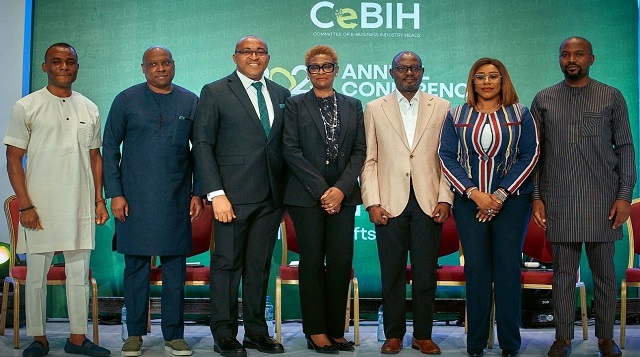General News
AppsFlyer Reveals Gaming App Install Ad Spend Reaches $26.7B Globally Despite Slowing Growth in Installs

AppsFlyer has released its State of Gaming App Marketing for 2023, an in-depth report on key gaming trends for app developers, marketers and game studios to utilize as they navigate through a year of challenging macro trends, including the new age of data privacy.

As the post-Covid era unfolds, a digital slowdown, or return to pre-Covid conditions, is taking place. While the effects are becoming increasingly apparent in metrics like overall app installs by consumers, the gaming app economy still showed resilience with nearly $27 billion invested in ad spend by gaming marketers and developers worldwide in 2022 in order to acquire new users.
Overall, Android game app installs rose slightly, by 8% compared to 2021, whereas iOS game app installs showed a small decline, with a 5% drop.
Based on advertising investment, the United States remains the largest target market for gaming app marketers by a significant margin, followed by Japan, South Korea, Germany and the United Kingdom.
“If 2021 and the first quarter of 2022 was the golden age of gaming, the second half of 2022 and especially 2023 will be a time that marketers, developers and studios will need to overcome challenges to adopt highly-focused, efficient strategies for attracting and inspiring loyal, valuable players,” said Shani Rosenfelder, Director of Market Insights at AppsFlyer.
“Evolving marketing budgets coupled with drops in consumer spending across some genres mean game businesses are compelled to prioritize profits over growing the sheer size of their numbers of players. Despite the hurdles, however, mobile gaming remains a lucrative powerhouse nearing three billion players globally.
Marketers will continue to succeed by putting more focus on modern measurement capabilities, utilizing techniques that deliver an engaging experience while respecting user privacy, and leveraging remarketing and owned media channels further in order to offset increases in their cost-per-installs (CPI).
Additionally, they will need to dive deep into the complex yet promising SKAN 4.0 from Apple, and invest more in campaigns outside of the United States, as gaming is truly a global phenomenon.”
As for gaming app revenues, the State of Gaming report reveals that consumers spent the most on in-app purchases (IAP) in role playing and social casino (not real money) games. Purchases in these game categories declined mostly in the second half of 2022, leading to an overall drop in IAP revenues by 7% compared to the first half of the year.
The economic downturn appears to have impacted consumer behaviour in high IAP genres of role playing and social casino more than other categories like match or puzzle games, which rely more on micropayments. In-app advertising (IAA) remained the strongest driver of revenues for hyper casual, match and simulation games, though IAA revenues also declined across most genres towards the second half of 2022.
Key Insights from the 2023 State of Gaming App Marketing:
- $26.7 Billion total gaming app install ad spend worldwide in 2022. The US commands nearly half at $12.2B thanks to its high-volume and high-cost media landscape; Japan is a distant second with nearly $2B in spend.
- Worldwide, Android game app installs rose slightly in 2022, iOS game app installs showed a small decline. There was an 8% YoY growth in total app installs of Android games. A -5% YoY install drop on iOS reflects the continued challenges iOS app marketers are facing following Apple’s privacy changes (despite the improvement vs. the previous 2022-2021 YoY figure of -13%). In the US, still considered the most important market for gaming app marketers, 2022 saw a 19% growth in Android app installs and -1% decline in installs of iOS gaming apps when compared to 2021.
- The second half of 2022 in particular was a struggle for in-game purchases with the economic uncertainty in the market. There was a -7% overall drop in in-app purchase (IAP) revenue in H2 2022 compared to H1 2022, with iOS down 9% and Android down 4%. Overall, in-app purchases on Android gaming apps were down -14% year-over year (YoY), while iOS was down -1% YoY. This was driven largely by a decline in Role Playing and Casino game genres that typically have high rates of in-app purchases, and where the economic downturn appears to have impacted consumer spend.
- Categories that saw largest growth in 2022 vs. 2021: 48% growth rate for Android casino games, 3x more than second-place Hypercasual and 5x higher compared to the growth rate in puzzle and Role Playing games (RPG). Casino games led growth on the flagging iOS side, clocking an impressive 17%.
- Cost-per-installs on iOS continue to climb: 88% is the increase in CPI on iOS from Q1 2021 to Q4 2022, shooting up $3.75 per install as iOS marketers continue to accept high prices to acquire valuable Apple users. YoY rates show a 35% jump.
- Marketers increasingly leveraging owned media channels: As marketers look to get more value out of their budgets, the use of owned media strategies such as push notifications, in-app messages and cross promotion is seeing a sustained rise. This has led to a significant YoY increase in the number of owned media conversions, with a 16% growth on iOS and a 34% surge on Android.
“As gaming marketers continue to navigate their way through a shifting economic landscape along with privacy changes, particularly on iOS, they face fresh challenges and opportunities in regards to their app marketing efforts,” said Adam Smart, Director of Product, Gaming at AppsFlyer.
“Privacy restrictions on iOS limit the ability of marketers to leverage user-level data, which was previously the cornerstone of their ability to connect campaign performance to attracting new users.
“Yet despite a significant rise in media costs and measurement challenges, gaming apps are still investing heavily in capturing high-quality players on iOS, and are not shifting those resources to Android even if the approach results in attracting fewer users overall.
“This gives greater importance to the use of privacy-enhancing tech and data clean rooms in 2023 and beyond, and will also provide advantages to those able to leverage accurate and comprehensive data for making the timeliest decisions on where, when and how to optimally invest budgets in ways that attract and retain the most valuable players.”
“With Europe and North America often being a benchmark for African countries, it is safe to say that the gaming industry on the continent also follows the same trend. Overall, gaming app installs ad spend reached $26.7 billion globally in 2022, with a small portion of this attributed to Africa, primarily South Africa.
Based on AppsFlyer’s recent report on the State of Gaming App Marketing, we have seen that gaming app installs have decreased on iOS, while there has been a notable increase across android devices.
This is a sign of things to come for the African gaming industry, and we predict that more African countries will contribute to the overall ad spend on gaming app installs in the coming years.
“With the United States comprising almost half of global gaming ad spend at $12.2 billion, investing in the country is important despite the heightened competition. But, other countries have growing gaming populations and are not as competitive when it comes to hunting for paid installs. High population countries like South Africa, Indonesia, India, and Vietnam are always hungry for new content” he added.
General News
Top Nigerian Startups Secure Funding Boost @ iHatch Demo Day Awards

Nigeria’s startup ecosystem received a fresh injection of momentum as top emerging ventures secured funding and investor attention at the iHatch National Demo Day, where Interface Africa clinched the highest prize of $15,000.

The 4th cohort of the NITDA–JICA-backed accelerator brought together founders, policymakers, and venture stakeholders in Abuja, showcasing innovations ranging from clean-energy financing and digital food marketplaces to next-gen fintech tools.
The startups went rounds of running through state-level selections and regional competition. iHatch was established in 2021 as a strategic partnership to create an enabling environment for young Nigerians to develop and scale their innovative solutions.
The iHatch National Demo Day (4th Cohort), is an initiative by NITDA and JICA which provides a clear pathway for homegrown talent to contribute significantly to economic diversification and digital transformation.
After rigorous selection processes, the top founders converged to pitch their innovations, recognised the standout performers, which are:
Interface Africa with $15,000, the firm is driving Nigeria’s clean energy transition by enabling structured and affordable solar financing.
Ahioma with $12,000, the firm enhances food accessibility with a digital marketplace connecting consumers directly to trusted vendors.
Linia Finance with $10,000, the firm is helping Nigerians take control of their finances with tools for budgeting, tracking, and smart money planning.
Chapta got a laptop reward. They delivering an offline-capable school application ensuring consistent, accessible learning for students everywhere.
Softdrop also got a laptop reward, they solve logistics challenges through a modern delivery platform designed for speed, convenience, and efficiency.
General News
Fidelity Bank to Host Virtual Masterclass on New Tax Law

Fidelity Bank Plc, a leading financial institution, will host a free virtual training on the Nigeria Tax Act 2025 (NTA) as part of its commitment to helping small businesses prepare for the upcoming legislation.

Fidelity Bank
The masterclass is scheduled for 10:00 AM (Nigerian time) on Friday, 12 December 2025. It will provide participants with clear insights into changes in the tax framework, the impact on income and business operations, and practical steps to avoid penalties in 2026.
Attendees will also learn strategies to stay ahead in an evolving regulatory environment.
The Nigerian government enacted major tax reforms on 26 June 2025 when President Bola Ahmed Tinubu signed four tax bills into law.
These Acts will take effect on 1 January 2026 and represent a significant overhaul of the country’s tax system.
The reforms aim to modernize and harmonize Nigeria’s tax framework, improve revenue generation, broaden the tax base, and create clearer rules for individuals, businesses, and government agencies.
“Our decision to host this masterclass reflects our commitment to empowering businesses with the right information ahead of the commencement of the new tax regime.
“Information is money and a well-informed business owner is already steps ahead in the race to success.
“This is why we are bringing experts to provide accurate details and demystify the tax act,” said Osita Ede, Divisional Head, Product Development, Fidelity Bank Plc.
Interested participants can register via https://bit.ly/2026TaxLawMasterclass .
General News
PalmPay MD Seeks Deeper Financial Inclusion @ CeBIH Annual Conference 2025

PalmPay, Nigeria’s leading digital banking platform, has renewed its commitment to deepening financial inclusion across the country. At the CeBIH Annual Conference 2025, themed “Reimagining Financial Inclusion through Cultural Shifts in Consumer Credit,” PalmPay’s Managing Director, Chika Nwosu, urged industry players to deepen financial inclusion by embracing community-aligned solutions and customer-centric innovations that can better serve Nigeria’s underserved and unbanked populations.

Speaking during a panel session titled “Social Inclusion, A Veritable Tool for Financial Inclusion,” Chika Nwosu joined other industry leaders to share insights on strengthening participation among women, rural dwellers, low-income earners, and other financially excluded groups.
Chika Nwosu highlighted PalmPay’s commitment to inclusive finance through its 500,000-strong agent network, which enables seamless cash-in/cash-out services for unbanked users across Nigeria. He also emphasised the importance of PalmPay’s USSD platform, 861#, which allows users with basic phones or limited internet access to perform essential financial transactions.
“Financial inclusion goes beyond access; it must be equitable and tailored to real-life needs,” Chika Nwosu said. He shared how PalmPay leverages behavioural insights to design impactful services, including affordable health insurance, reliable bill payments, merchant solutions, and automated savings features that support financial discipline among users.
The session further examined the role of grassroots agents and community touchpoints in driving last-mile adoption. Chika Nwosu noted that PalmPay’s widespread community presence continues to build trust and encourage excluded populations to embrace digital financial tools.
The session was moderated by Ronke Kuye of the CeBIH Advisory Council and featured representatives from E-Doc Online, SmartCash Payment Service Bank, SANEF, and EFINA.
PalmPay reaffirmed its commitment to driving accessible, secure, and inclusive financial services for all Nigerians. PalmPay is a leading digital banking platform driving financial inclusion and economic empowerment in underserved emerging markets. Through its secure, user-friendly, and inclusive suite of financial services, PalmPay empowers individuals and businesses with tools to manage and grow their money.
PalmPay offers a comprehensive range of products, including mobile payments, savings, and micro-insurance via its app and mobile money agent network.
Since launching in Nigeria in 2019 under a Mobile Money Operator license, the platform has grown to over 35 million app users. PalmPay has operations in Nigeria, Ghana, Tanzania, and Bangladesh.

 Telecom2 days ago
Telecom2 days agoMTN Nigeria Launches Unlimited 5G Broadband Plans to Boost Digital Inclusion

 News2 days ago
News2 days agoFRC, ICPC Seal Anti-corruption Alliance

 News2 days ago
News2 days agoDebt Rises in AI Data Centre Boom

 Telecom2 days ago
Telecom2 days agoMoMo PSB Brings Relief to UNILAG Students with Ultra-Cheap Bus Fares

 Telecom1 day ago
Telecom1 day agoMinister Claims Bandits Exploit Poor Network, Bounce Calls Off Multiple Towers

 E-Financial2 days ago
E-Financial2 days agoSterling Bank, Pan-Atlantic University Partner to Certify Non-Oil Export Academy Graduates

 Broadcasting2 days ago
Broadcasting2 days agoYoung Africans Hit Hardest by Online Gender Violence, Paradigm Initiative Reports

 General News2 days ago
General News2 days agoFidelity Bank to Host Virtual Masterclass on New Tax Law
























